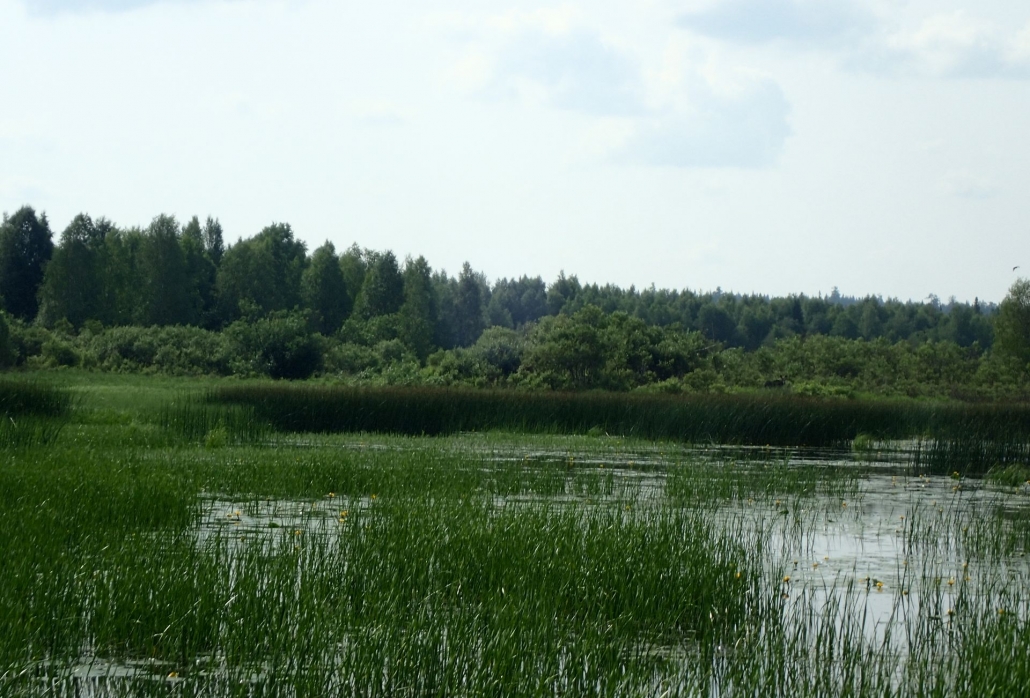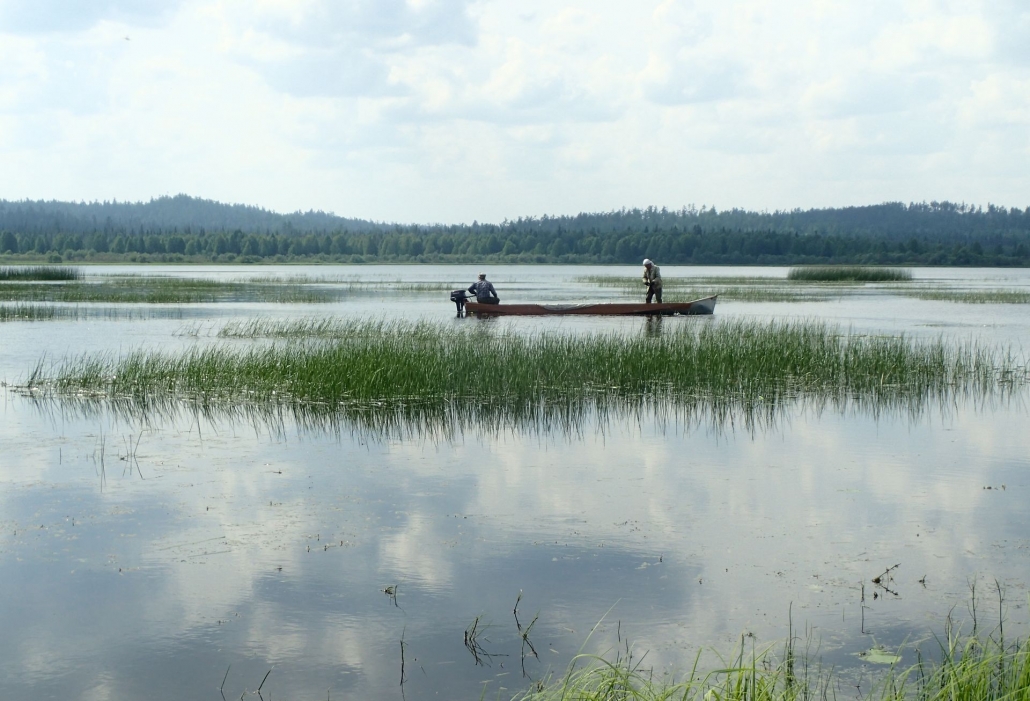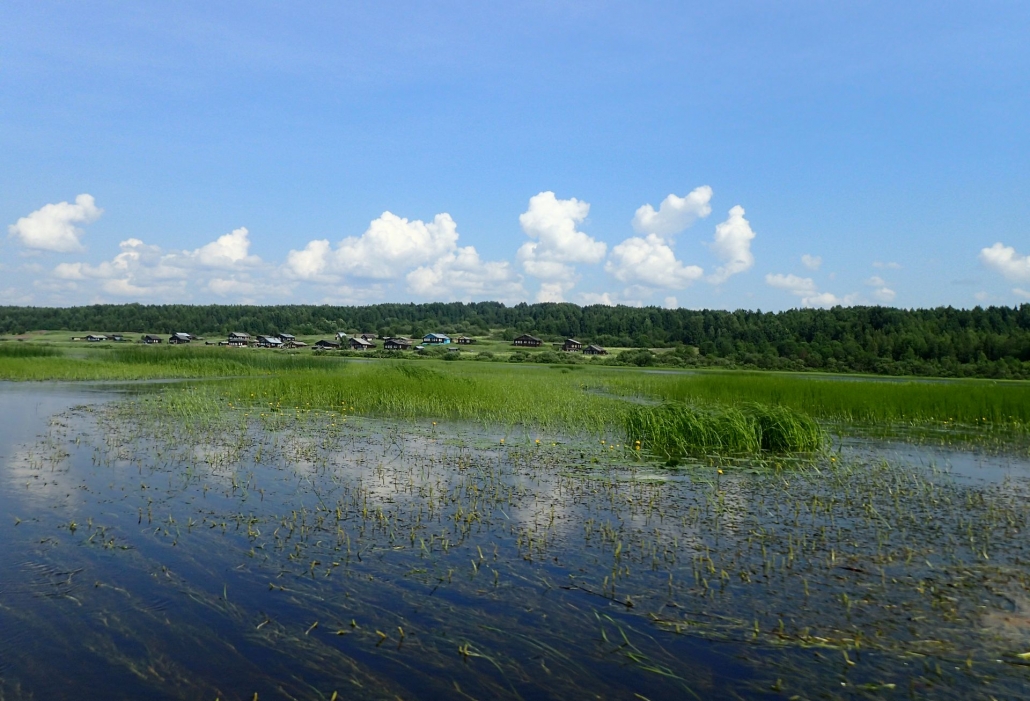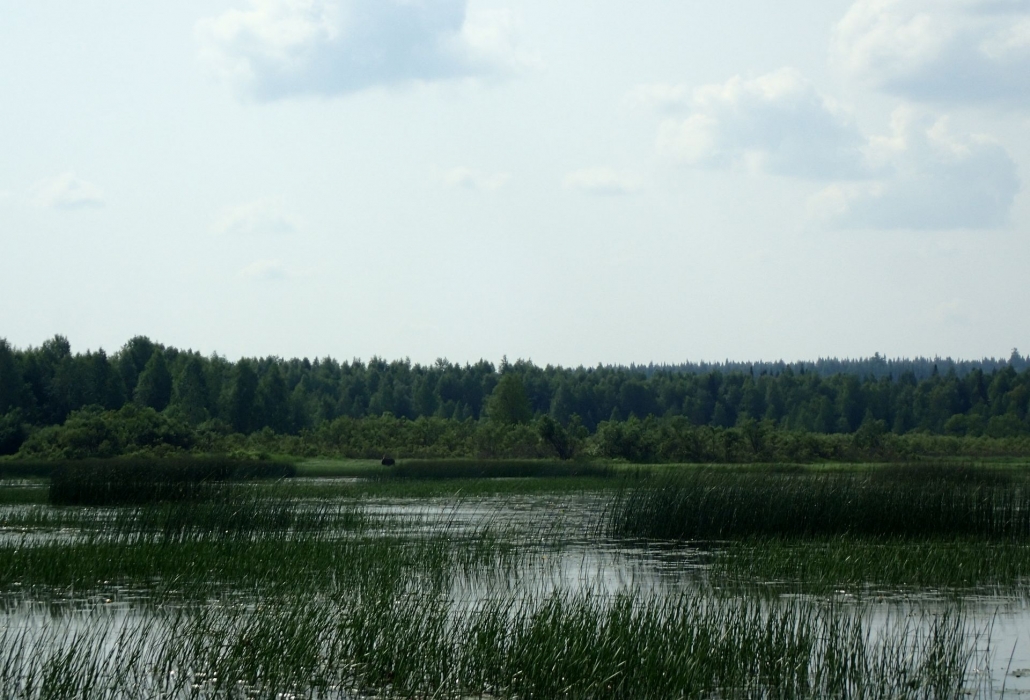FULL-SCALE CLEANING REQUIRED FOR IRVA LAKES
This conclusion was made by members of the Silver Taiga Foundation for Sustainable Development after they had made an inspection trip to the Irva lakes in Udora district on 16-20 July 2018. The expedition was held as part of the Model River Mezen project.
The Irva lakes are a series of lakes connected through the Irva river. As AgroUdora fishery cooperative having dealt with fishing at the Irva lakes for several decades states, from year to year their water bodies get more and more overgrown with exploding aquatic vegetation, such as duckweed, pondweed, spatterdock, rush, hornweed and shavegrass. Some lakes get completely covered with green weeds with no clear spots left. It is getting more and more difficult for fishermen to find their way for boat transportation. What’s worse, fish suffocation occurs in the lakes from time to time.
Based on the results of the research during the expedition, the lakes eutrophication process continues, extensive drift is accumulated. According to Nikolay Shilov, Model River Mezen project coordinator and head of the research group, such phenomena occurring in water basins lead not only to reduced fish population, but also to changing of fish communities. The share of high-value fishery species like lake herring or grayling goes down, while the population of common species – perch or roach – increases.
Silver Taiga’s experts started research on the Irva Lakes as early as two year ago trying to identify dominating plant species and the area of weediness on the lakes. When the monitoring was completed, they managed to request the Federal Fishery Agency (Rosrybolovstvo) to include cleaning of the lake of Krivushev-Ty in the 2017 Action Plan for Fishery Improvement of Aquatic Bodies. Respective activities were successfully fulfilled on the lake last year. This year, a request for improvement has been sent by the cooperative, but it has not been approved by the sectoral science. However, it was necessary to assess the efficiency of last year improvement activities and monitor the development of negative trends on the lakes. Unfortunately, as Nikolay Shilov reports, the level of water turned out to be higher than the summer steady low water level and event went up when the Foundation’s people worked on the Irva lakes. In this connection, the research group faced some methodological difficulties in assessment of weediness, as some plants were partially covered with water.
“The cooperative’s and the Foundation’s staff got different opinions on the efficiency of last year improvement activities. Agro-Udora believes that the efficiency was zero. Silver Taiga’s experts monitoring the ongoing situation with a fresh mind think that the area cleared from vegetation last year remains relatively clean. But our views about the root cause of weediness of the lakes – failure to clean the bottoms of water reservoirs from mud and drift – were similar. If you do not clean the bottom, aquatic plants will grow even more intensely in those areas due to favorable conditions, such as shallow water, rich nutrition for root systems of plants, good heat penetration and light intensity. Unfortunately, it will not be possible to conduct a large-scale clean-up of the water reservoirs by AgroUdora’s efforts only. Improvement requires massive and costly activities, in addition, the region has no equipment for such work,” Nikolay Shilov concludes.
According to his words, there is another option – biological improvement, which is the least expensive method. However, traditional release of plant-eating fish will not be fruitful as a result of severe climatic conditions in this area. Water rats deal successfully with aquatic vegetation, but the population of the gnawing animal has reduced, because they are killed by fishers. They believe that water rats damage their fishing nets.
“Nevertheless, we should not quit the idea of cleaning the Irva lakes. The cleaning strategy has been discussed with representatives of Rosrybolovstvo, and we will try again to apply for the federal program of fishery improvement of water bodies. The data obtained through the recent research will become the base for justification of the need in cleaning activities,” Nikolay Shilov sums up.






